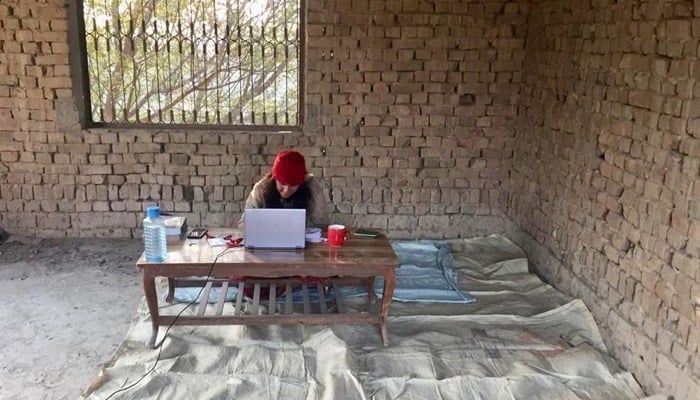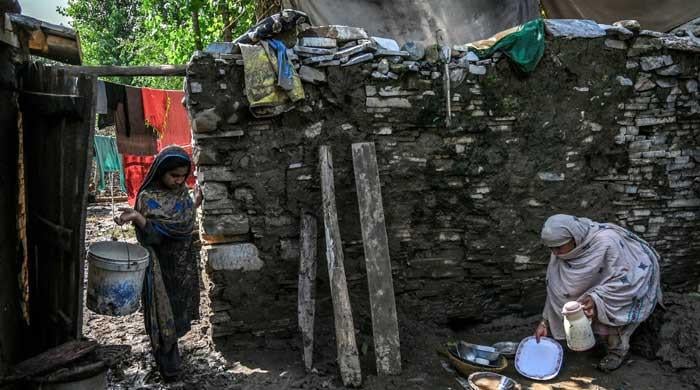A year on: Students enrolled at Chinese universities still struggling to adjust to online learning in Pakistan
Some 5,000 students in Pakistan, who are unable to travel to China, are forced to take their exam and classes online.
February 01, 2021

Today, like most days, Mehwish Muzaffar, a PhD student, has to take her online classes at the rooftop of her home. She lives in a remote village in the Vehari district of Punjab.
It is bone-chilling cold this morning. Wrapped in the warmest blanket she could find, Muzaffar sits glued to her laptop, listening to a lecture streamed all the way from China.
The 30-year-old, who is enrolled in a doctoral degree programme at the East China Normal University, returned to Pakistan in January last year after the outbreak of the deadly coronavirus in China. Since then, she has not been able to return to her university in Shanghai.
Soon after Muzaffar returned to Pakistan, the Pakistani government halted flights to and from China for nearly a month. And when flights finally resumed, Beijing suspended most international flights in order to control the spread of the virus, making it harder for international students to return.
While some students have since been flown back by Pakistan on special flights, others — like Muzaffar — are still stuck.
For now, Muzaffar has on the rooftop of her house, the only place where she can catch good Wifi signals to attend her classes. “It is very cold, but I don’t have a choice,” she tells Geo.tv.
Her university has warned its international students that if they are disconnected for more than three minutes, they will be marked absent in the class. That is a risk Muzaffar cannot take, which is why she keeps two fully-charged Internet devices with her at all times. If the signals drop on one device, she can quickly switch to another.
As per Muzaffar, there are some 5,000 students like her in Pakistan, who are unable to travel to China and are forced to take their examinations and classes online.
For almost all students, connectivity is a major concern in Pakistan, a country where there are frequent power outages.
Muhammad Younas, a student of sociology at the Central China Normal University in Wuhan, China, agrees and says that online classes are a nightmare. At his home in the Balochistan province, the Internet connection fluctuates, as there are areas around his home where Internet access is still restricted to 2G speed.
“To communicate with other students, I have downloaded applications like WeChat,” he told Geo.tv over the phone. “But they don’t work as smoothly at my home due to the slow Internet.”
Even as students are anxious to return to their campuses in China, authorities are still unsure. Vaccination drives against the coronavirus have kicked off in China and are to begin in Pakistan from this week, yet regular flight operations between the two countries have not resumed.
Also, last week, Pakistan’s Higher Education Commission issued advisory encouraging Pakistani students to continue taking their online classes at Chinese universities, adding that due to the second wave of the pandemic “the immigration policies for international students to China have not been determined yet.”
According to the China Admissions, an online platform for international students applying to Chinese Universities, in 2019 there were 28,023 Pakistanis studying in China. Of these, 6,156 Pakistanis are enrolled in the PhD programmes, 3,600 in graduate programmes, 11,100 in bachelor's programmes, and 3,000 in short-term exchange programmes across China.
In fact, Pakistan has the third-highest population of students in China.
“I hope to return to China as soon as the pandemic situation is normalised,” says Muzaffar. “Attending classes like this, with the fear of losing the Internet connection, is not easy.











